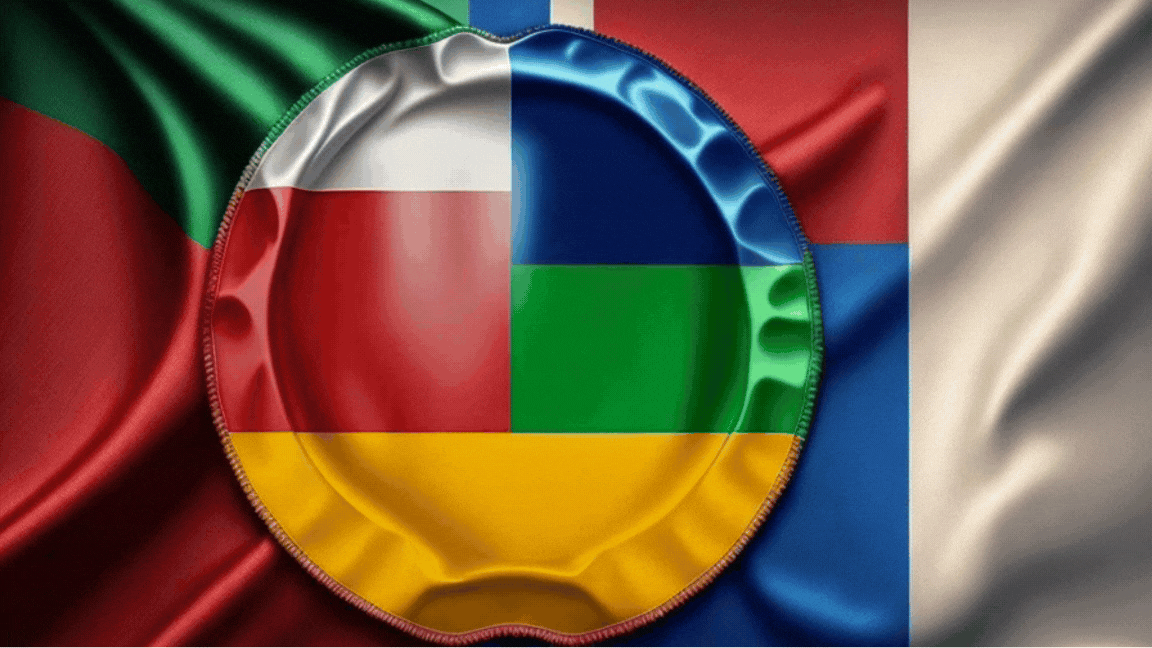
Cuba continues in free fall looking for its deepest dip
The Government here suspended all non-essential work activities for this Friday and tomorrow, Saturday, amid a new energy contingency marked by the decrepit state of the thermal generation plant, and the deficit of fuel to feed diesel and fuel oil engines deployed throughout the country whose operational status is also severely diminished by overexploitation and lack of timely maintenance and spare parts. Thus, although the total installed power generation capacity is about 6,500 MW, last Wednesday the country only had 1,490 MW to meet a demand of 3,290 MW during peak hours, which adding the 70 MW that should always remain in reserve above the maximum demand resulted in a preliminary deficit of 1,870 MW.
That is: 57% of the country would be off during peak demand time, with 527 MW disabled due to a lack of fuel for distributed generation. Most of the provinces had only a few vital circuits on, specifically those including critical facilities such as hospitals. In an eastern province, there was a power circuit with just four hours of service on Thursday, while another was affected for more than 13 continuous hours. All this occurs when the availability of liquefied gas is at minimums—the supply never meets demand anyway—, forcing people to cook with coal and other alternatives. The duration of the power outages also puts at risk the state of food that requires freezing, although I estimate that a good part of the population lacks meat products in a context of integral crisis, where the energy issue is only one of the factors that hit.
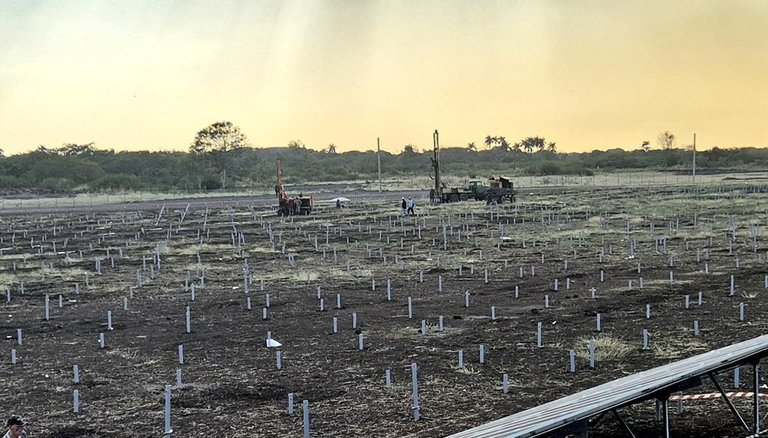 The government promised that by the end of the year it will have installed 1,200 MW in photovoltaic solar parks with 200 MW of power accumulation, which would constitute a relief to the current crisis (source).
The government promised that by the end of the year it will have installed 1,200 MW in photovoltaic solar parks with 200 MW of power accumulation, which would constitute a relief to the current crisis (source).The communist administration has almost lost all capacity to sustain at least a supply of products such as rice, sugar, and oil, which used to reach all families monthly and constituted at least the beginning of national consumption. The private initiative, tenuously restarted by Raul Castro's government is gaining more relevance every day as a source of supply for Cubans, but prices disrespect their usually meager wallets. Imported products predominate, which also end up being resold through an unstoppable informal trade network that turns into new millionaires and clients of expensive hotels those better taking advantage of the moment. Another privileged group with access to foreign currency—via remittances or income—closes the not-so-large circle of people who can navigate these turbulent waters without sinking.
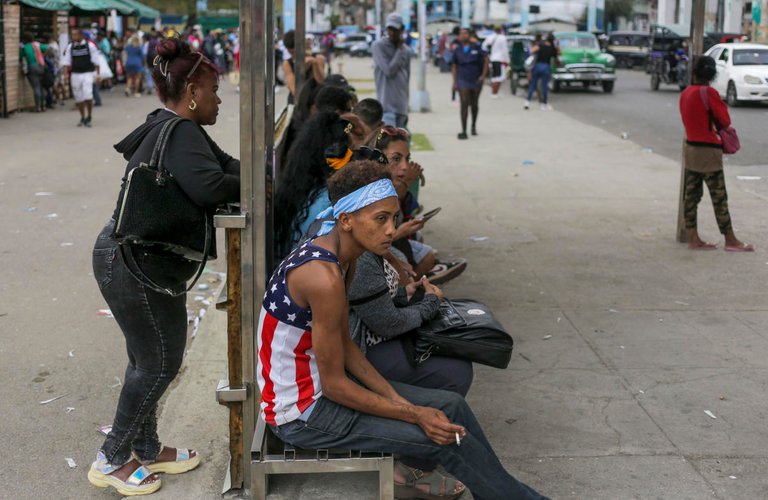 Cubans at a bus stop (source).
Cubans at a bus stop (source).How did we get here? Where's the deepest dip?
Finding the deepest dip will be important because invariably there will be a rebound and hopefully some air for an anguished citizenry that no longer has the strength even to complain. Ten years ago the Cubans had some hope thanks to the promise of an easing of tensions with Washington spurred by a historic prisoner exchange on December 17, 2014. Relations have been troubled since 1959 following the triumph of Fidel Castro, with the adoption of an aggressive approach sustained by successive administrations until Obama's second term. The former Democratic president certainly loosened substantively the chains of the comprehensive embargo.
But in 2017 Trump gifted the so-called “historic Cuban exile” based in Florida with the resumption of the hard-power policy toward Havana, which at the end of his first term in the White House included the prohibition of transactions with Cuban Armed Forces-owned business—with a disputed, broad participation in strategic sectors of the national economy such as tourism—, the revocation of a license allowing U-turn transactions, the designation of oil importing companies, and the unjustified return of Cuba to the State Sponsors of Terrorism List. Then came the COVID-19 pandemic, which in 2021 had its deadly peak here both in terms of health and economic impact.
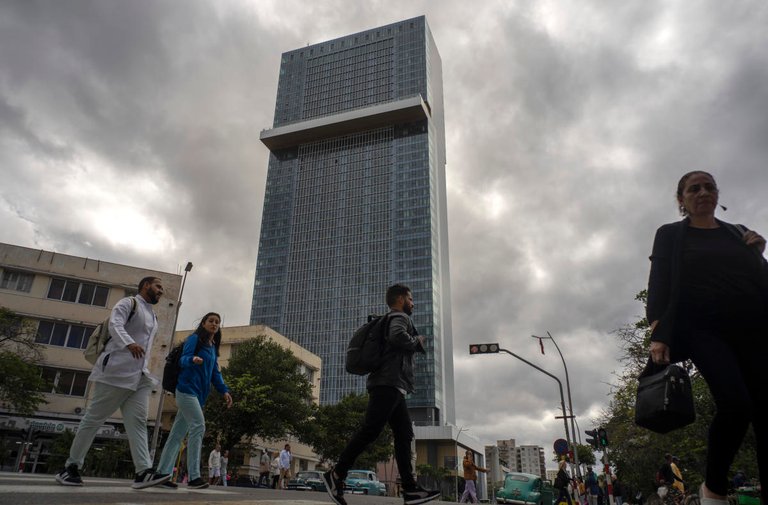 Tourism does not wake up, but the Cuban government controversially continues investing hard in this industry (source).
Tourism does not wake up, but the Cuban government controversially continues investing hard in this industry (source).In January of 2021, the Government started a failed restructuring of the economy, and on July 11 the most important mass protests ever faced by the Cuban Revolution broke out. So in 2021 also began a painful exodus of Cubans to the United States, which for many had its first stop in Nicaragua and then had a more favorable dynamic with the introduction of two disbanded immigration flagship programs promoted by the Biden administration, one of which allowed 110,240 islanders to arrive in “lands of freedom” and obtain parole for two years. Since then, no economic measures have taken effect, with a “partial” dollarization process as the last card to which Havana is appealing to reflate the economy.
This is the first grocery store to accept hard US currency in Cuba in nearly two decades. The Communist-run country is increasingly using the dollar to fix its economy amid US trade embargo https://t.co/usL8Qg927o pic.twitter.com/5DT6cO6gYy
— Reuters (@Reuters) January 24, 2025
Added to this is the return of Donald Trump, who found the regulatory framework of the 63-year-old embargo practically in the same place where he left it. Trump gets along with Maduro or Putin and says that Kim Jong Un is a smart guy. Perhaps he would also be indifferent to the type of political regime that prevails in Cuba—in 2008 he registered his trademark here seeking opportunities in various sectors such as tourism and finance—if it were not for the fact that the Cuban issue goes through the revenge feeling of Cuban-origin citizens who over time gained much influence in Washington, and last year surely contributed to turn in favor of Republicans a county—Miami-Dade—once a bastion of the blues in the presidential elections. Marco Rubio, of Cuban parents, who advised from Capitol Hill the maximum-pressure policy activated in 2019, now reigns at Foggy Bottom. And so on.
The Trump Administration is restoring a tough Cuba policy that protects America and helps the Cuban people. We've maintained Cuba on the State Sponsors of Terrorism list – where it belongs – and taken other steps. The Cuban regime's oppression of its people and malign actions…
— Secretary Marco Rubio (@SecRubio) January 31, 2025
Milei rugged or do you believe him?
Hace unas horas publiqué un tweet, como tantas otras infinitas veces, apoyando un supuesto emprendimiento privado del que obviamente no tengo vinculación alguna.
— Javier Milei (@JMilei) February 15, 2025
No estaba interiorizado de los pormenores del proyecto y luego de haberme interiorizado decidí no seguir dándole…
🚨BREAKING🚨 @JMilei just broke the world record for fastest memecoin $LIBRA rug pull, beating the previous world record set by @FA_Touadera $CAR of Central Africa 💀
— UpUpCrypto ⭕️ 💙☠️ ⬆️ 🐰🦇 (@UpUp_Crypto) February 15, 2025
Argentina’s economy finally found something that moves faster than inflation! 💸😂 #MileiRug #rugpull #crypto… pic.twitter.com/znYu81Fmko
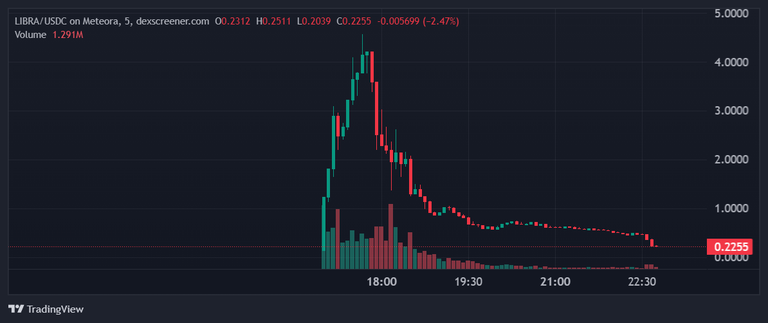 Source
SourceThe president of Argentina Javier Milei just rugged CT with the launch of $LIBRA that briefly touched a $2billion market cap before crashing
— INTERN ✈️ ETHDenver (@Intern_SaharaAI) February 15, 2025
Imagine getting farmed by someone that couldn’t let go of their 2008 emo hair style🥴
pic.twitter.com/beSeeRWRjs
The reason why $LIBRA LOOKS like a RUG now is simple
— Damian Prosalendis (@DamianProsa) February 14, 2025
It was an insider play where select FnFs got early contract and sniped millions of dollars.
The wild thing is that they did it alongside with the President of Argentina
Thanks for playing friends pic.twitter.com/EeA35FVtVt

